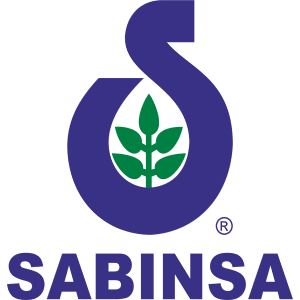Cranberry and Fenugreek are both well known for the benefits their actives provide, but until recently little was understood about the prebiotic activity that brings added value to these botanical products. Recent studies published on Sabinsa’s LactoWise® and LactoCran® are expanding the body of science on the added benefits of their prebiotic activity.
Cranberry fruit is known for nutritional and medicinal properties due to the presence of bioactive compounds, but it is little known for prebiotic potential. The aim of this study by Majeed, M., Nagabhushanam, K., Arumugam, S., Natarajan, S., Majeed, S., Pande, A., Beede, K. and Ali, F. (2018) “Cranberry seed fibre: a promising prebiotic fibre and its fermentation by the probiotic Bacillus coagulans MTCC 5856 (Int J Food Sci Technol. doi:10.1111/ijfs.13747) was to determine the prebiotic potential of cranberry seed fibre from Fruit d’Or and its fermentability by the probiotic bacteria Bacillus coagulans MTCC 5856. Results of the in vitro study revealed that cranberry seed fibre from Fruit d’Or is non-digestible to gastric acid and pancreatic enzyme hydrolysis, suggesting the prebiotic nature. Further, this cranberry seed fibre supported the growth of probiotic bacteria Bacillus coagulans MTCC 5856 by serving as sole source of nutrition in in vitro experiments mimicking the in vivo conditions.
Bacillus coagulans MTCC 5856 inhibited the growth of colonic pathogen E. coli ATCC 25922 while fermenting the cranberry seed fibre in a co-culture model, demonstrating the synbiotic feature (prebiotic and probiotic). The study suggests that this combination, available from Sabinsa and Fruit d’Or Nutraceuticals as LactoCran®, may provide better health benefits in clinical conditions. Because not all cranberry and probiotic strains are the same, the findings of this study apply only to these branded ingredients.

The results of the study concluded that cranberry seed fibre produced by Fruit d’Or exhibited prebiotic property and was found to be suitable for an ideal synbiotic product preparation. In a previous study, B. coagulans MTCC 5856 spores reported to be stable during various functional food processing and storage. Hence, B. coagulans MTCC 5856 and cranberry seed fibre combination can be used for formulating shelf-stable probiotic foods and may provide additional nutritional as well as functional health benefits due to the presence of dietary fibre, protein, essential amino acids, fatty acids and proanthocyanidins.
“We are excited to be working with Sabinsa and pleased that they selected our cranberry seed to be used in research which takes cranberry beyond the UTI niche” said Stephen Lukawski, lead consultant and product development specialist for Fruit d'Or.
In another study published in the peer reviewed journal “Food Science and Nutrition”, reported that galactomannans from fenugreek seeds showed resistance to gastric acid and pancreatic enzyme hydrolysis and also supported the growth of probiotic bacteria B. coagulans MTCC 5856 as a nutritional as well as carbon source, thereby exhibiting prebiotic property (Majeed M, Majeed S, Nagabhushanam K, et al. Galactomannan from Trigonella foenum-graecum L. seed: Prebiotic application and its fermentation by the probiotic Bacillus coagulans strain MTCC 5856. Food Sci Nutr. 2018; 00:1–8. https://doi.org/10.1002/fsn3.606).
Fenugreek, a common food spice used in Middle East and South Asia, is known for its traditional medicinal use to improve digestion, and for the management of blood sugar levels.
Authors also observed that B. coagulans MTCC 5856 produced short chain fatty acids (acetic, butyric and propionic acids) while fermenting the galactomannan. These SCFAs are particularly important for colon health and have anti-carcinogenic as well as anti-inflammatory properties and are the primary energy source for colonic cells.

Galactomannan exhibited prebiotic activity and is suitable with probiotic strain B. coagulans MTCC 5856 in a synbiotic combination, thus, it may play an important role in modulating gut flora by acting as a substrate to beneficial microbes. Furthermore, B. coagulans MTCC 5856 inhibited E. coli ATCC 25922 growth when co-cultured with galactomannan, suggesting competitive fermentation by the probiotic bacteria which added further beneficial property of this combination product.
The study concluded that galactomannan from fenugreek seed showed prebiotic potential and was also found to be ideal with probiotic B. coagulans MTCC 5856 in a synbiotic combination, which is available from Sabinsa as LactoWise®.
“We certainly recognize the growing need in the marketplace for proper prebiotics, and with Sabinsa’s understanding of probiotics, we feel the marriage of both is of prime importance to one’s health,” said Shaheen Majeed, Sabinsa president – worldwide. “These preliminary studies help set the stage for demonstrating such health benefits.”








